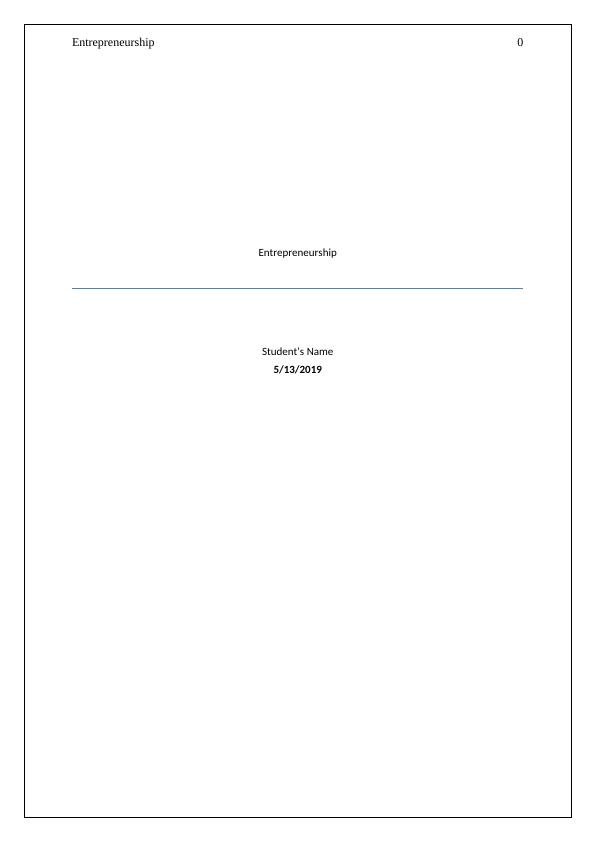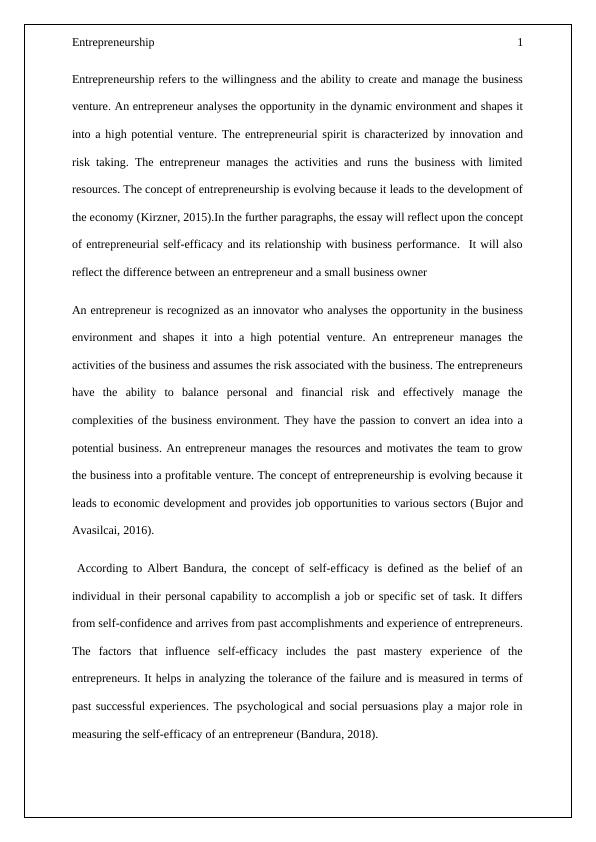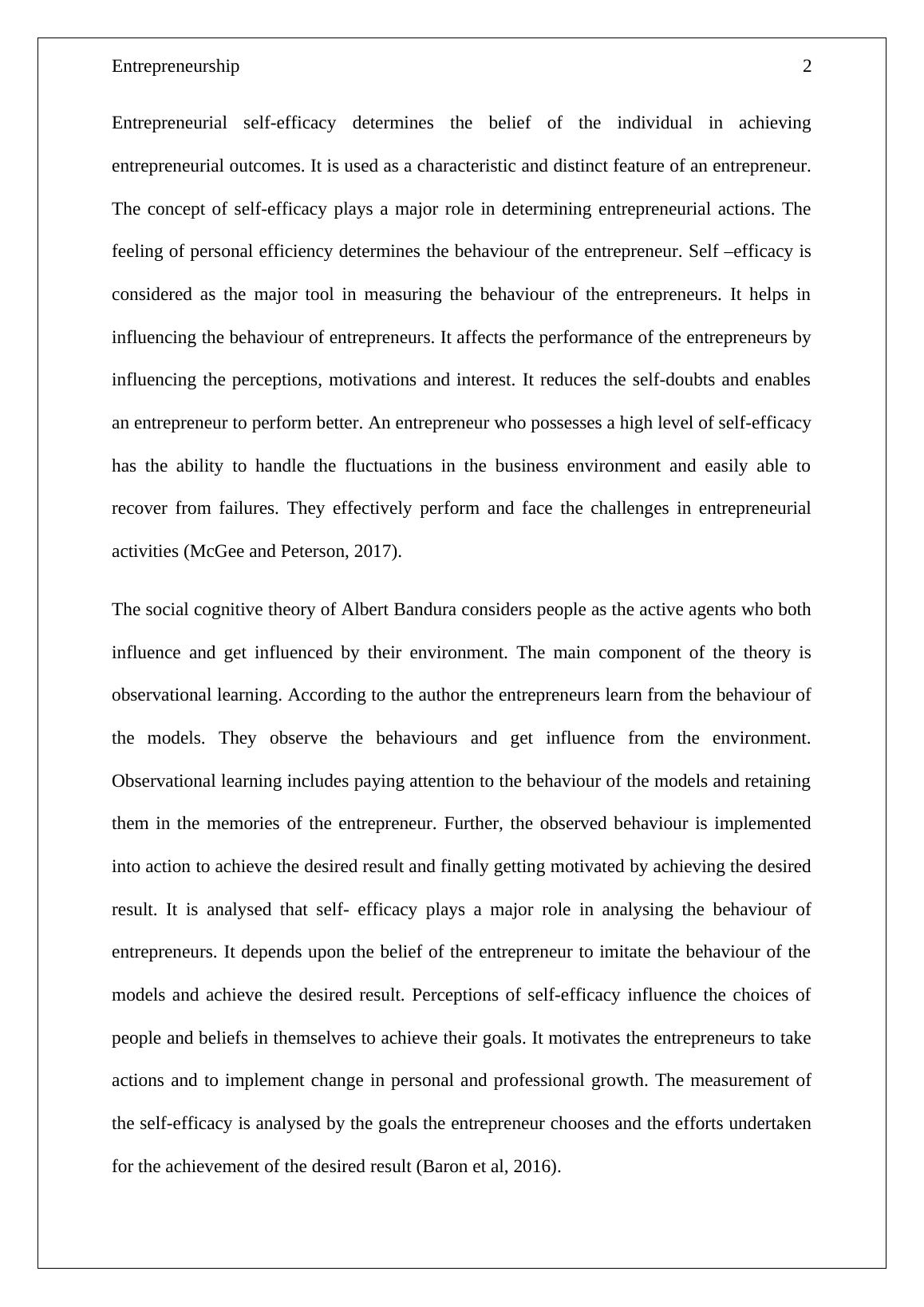Entrepreneurship: Self-Efficacy and Business Performance
Discuss the concept of ‘entrepreneurial self-efficacy’ and explain how this can be used to differentiate between ‘entrepreneurs’ and ‘business owners’. Critically discuss the positive and negative relationship between self-efficacy and performance.
8 Pages2004 Words39 Views
Added on 2023-03-23
About This Document
This essay explores the concept of entrepreneurial self-efficacy and its relationship with business performance. It also discusses the difference between an entrepreneur and a small business owner.
Entrepreneurship: Self-Efficacy and Business Performance
Discuss the concept of ‘entrepreneurial self-efficacy’ and explain how this can be used to differentiate between ‘entrepreneurs’ and ‘business owners’. Critically discuss the positive and negative relationship between self-efficacy and performance.
Added on 2023-03-23
ShareRelated Documents
End of preview
Want to access all the pages? Upload your documents or become a member.
Entrepreneurial Self-Efficacy and Its Influence on Business Performance
|7
|1158
|320
Characteristics and Skills of Successful Entrepreneurs
|12
|790
|498
Self Efficacy Assesment Report
|7
|1555
|28
Entrepreneurship and Small Business Management Task 2
|16
|807
|22
Applying Qualitative Analysis to Entrepreneurial Self-Efficacy
|7
|1562
|223
Small Business Management and Entrepreneurship - Report
|13
|4118
|80



